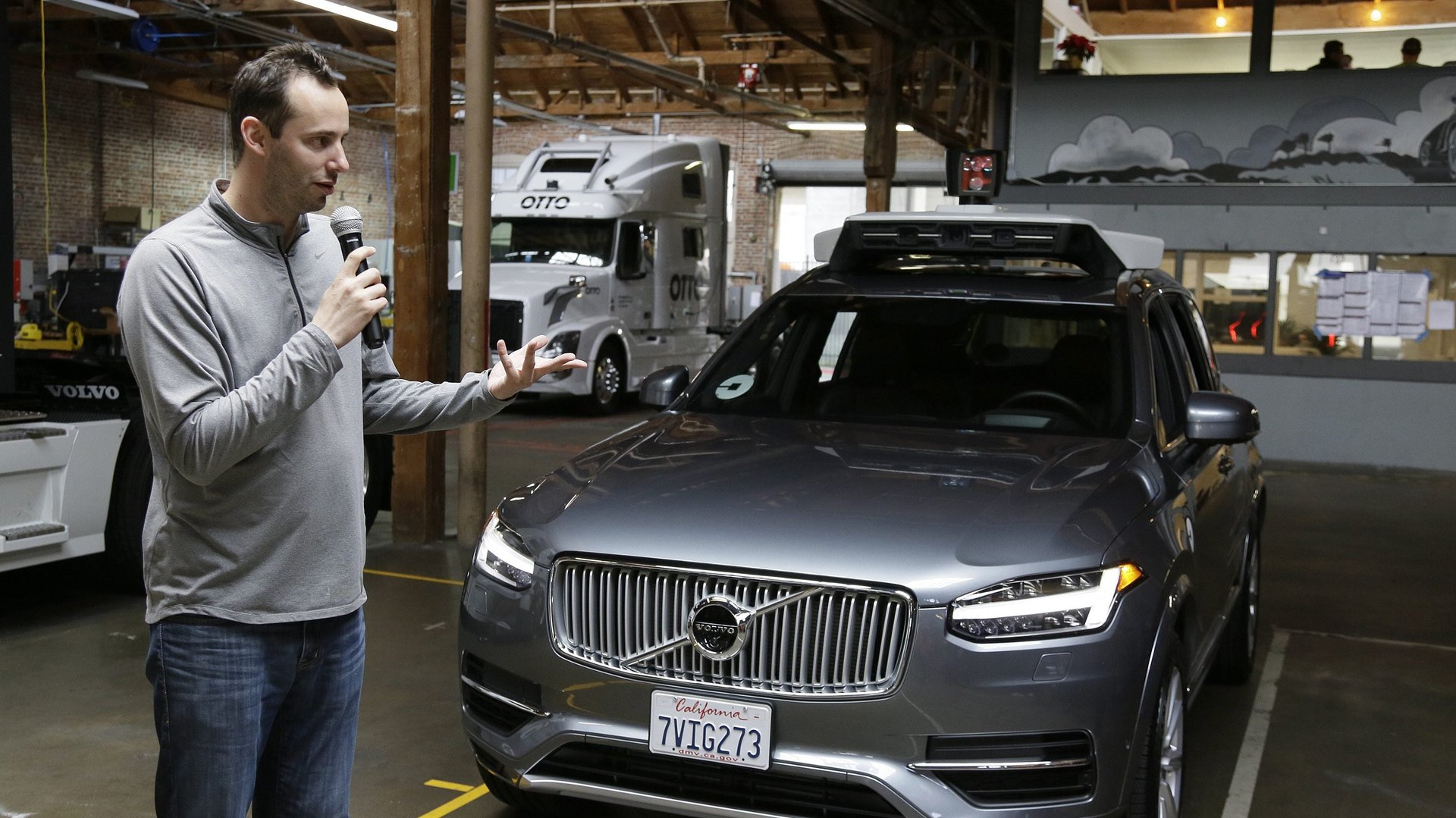The Uber engineer accused of stealing 14,000 documents from Waymo can’t use the Fifth Amendment to stop Uber from turning over documents
Anthony Levandowski, the Uber executive and former Waymo employee at the center of a trade-secrets lawsuit between the two firms, won’t be able to use the Fifth Amendment’s protections against self-incrimination to prevent Uber from turning over documents in the case, an appellate court ruled today.


Anthony Levandowski, the Uber executive and former Waymo employee at the center of a trade-secrets lawsuit between the two firms, won’t be able to use the Fifth Amendment’s protections against self-incrimination to prevent Uber from turning over documents in the case, an appellate court ruled today.
Levandowski is the key figure in the suit that Waymo, the self-driving car unit spun off by Google parent Alphabet, filed in February. Waymo has accused Levandowski of stealing 14,000 files, amounting to 9.7 gigabytes of “highly confidential” data, before leaving the company in January 2016. He went on to start Otto, a driverless trucking startup that was acquired by Uber last year for $680 million.
Waymo alleges that Levandowski started talking with Uber about forming a self-driving car startup Uber would be interested in buying as early as mid-2015. It has urged the court to bar him from any work related to Uber’s self-driving-car efforts.
Levandowski isn’t a named defendant in the suit—those are Uber and Otto—but as a central figure he has retained his own counsel. In late March, Levandowski invoked the Fifth because of the ”potential for criminal action,” precluding Uber from disclosing certain information requested by the court.
After multiple appeals, the court denied Levandowski’s request as it applies to the documents sought from Uber. “We are not persuaded that the district court erred in its ruling requiring defendants to produce an unredacted privilege log,” states an order from the US court of appeals for the federal circuit, according to a copy viewed by Quartz. The “unredacted privilege log” is the evidence the court ordered Uber to produce and which Levandowski said could potentially incriminate him.
“Mr. Levandowski has therefore failed to establish that he has a ‘clear and indisputable’ right to the issuance of a writ of mandamus,” the order concludes.
Levandowski’s failed bid to use the Fifth here could prove very bad for Uber if it forces the company to serve up incriminating documents. Even without those documents, William Alsup, the federal judge overseeing the case, has called Waymo’s case against Uber “extraordinary,” saying earlier this month, “I have never seen a record this strong in 42 years.”
Correction: An earlier version of this story suggested the court denied Levandowski’s ability to take the Fifth Amendment; what it specifically rejected was the argument that his Fifth Amendment rights should preclude Uber from turning over potentially incriminating documents sought in the case.